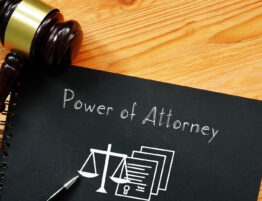
Do you have a will? A durable power of attorney? A health care directive? If so, no reason to read on. If not, why not?
The four most common reasons for not having an estate plan are: (1) just not getting around to it; (2) feeling that one’s estate is too small to justify a will or revocable trust; (3) believing that joint ownership of accounts with children is an adequate plan; and (4) not wanting to pay a lawyer to draw up the plan.
Just Not Getting Around to It
We should begin a discussion of why everyone needs an estate plan with a consideration first of what “estate” means and second of what “estate plan” means. Your “estate” is simply everything you own: bank accounts, stock, real estate, motor vehicles, jewelry, household furniture, retirement plans, life insurance.
Your estate plan is how you pass your estate to the next generation. This can be accomplished through a variety of instruments. Most retirement plans and life insurance policies pass to whomever you name as beneficiaries. Property that is jointly owned passes to the surviving joint owner. Trust assets go as provided by the terms of the trust.
Only property you hold in your name comes under the instructions laid out in your will. If you don’t have a will, such property passes under the rules of “intestacy” set out in state law. In general, those rules provide that your property will be divided among your closest family members.
Problems often arise when people don’t coordinate all these methods of passing on their estate. The will may say to divide everything equally among your children, but if you put an account in joint names with one child “for the sake of convenience” there could be a fight about whether that account should be put back in the pool with the rest of your property.
One of the most important aspects of a will is that it names an executor or personal representative to handle the probate of your estate. Litigation can develop simply because family members cannot agree on whom should take on this role.
For those with small children, the will is indispensable because it permits you to appoint a guardian in case both parents die. It also permits you to choose a trustee to manage your estate for the
benefit of your children. This person may or may not be the same as the guardian.
Estate Too Small?
For many individuals, especially those with smaller estates, the most important document is not the will, but a durable power of attorney. Through a durable power of attorney, you can appoint someone to handle your finances if you are ever unable to do so yourself. It also permits you to choose your guardian in case one is ever needed, although one of the main purposes of a durable power of attorney is to avoid such a necessity.
Like a durable power of attorney, a health care proxy appoints someone you trust to make medical decisions for you in the event of your incapacity.
While a will protects your estate after you’re gone, a durable power of attorney and health care proxy protect you while you’re still here. Don’t leave home without them (unless there is no one you trust enough to appoint.)
But I Took Care of It with Joint Accounts
No, you didn’t, unless you have only one child. It is impossible to keep separate accounts for more than one child equal. This is especially true if you become incapacitated and no longer have control over the accounts. Trying to save a few dollars by managing your estate in this fashion runs the strong risk of causing discord in your family for generations to come. Why take the chance?
But I Don’t Want to Pay a Lawyer a Lot of Money for Some Simple Documents
You can buy software that produces most of the estate planning documents an attorney will prepare for you. And in in many cases, those documents will do fine. But how do you know about your case? Do you have a taxable estate? Do you own significant amounts of tax-deferred retirement plans? Do you know how to fund the revocable trust provided on the computer program? Is there anything about your estate that is unusual, such as having a disabled child? Do you have a blended family?
In short, if there’s anything about your situation that’s not plain vanilla, you need to see a lawyer. If you have any questions about your estate plan, you need to see a lawyer. As with joint accounts, the problems you may create by not getting competent legal advice probably won’t be yours but may well be your children’s. Do you want to risk leaving that legacy?








